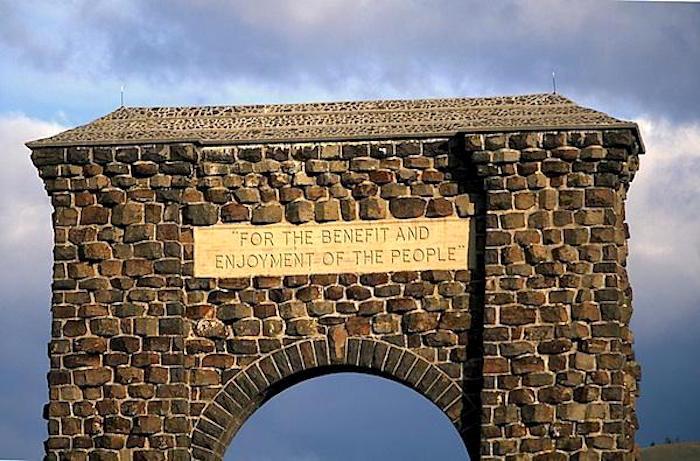
Interior Secretary Ryan Zinke's plan to make it a little more expensive to enjoy key national parks apparently is dead/NPS
Interior Secretary Ryan Zinke's plan to turn to surge-pricing at 17 national parks in a move to try to eat away at the National Park System's $11.6 billion maintenance backlog apparently has gone up in smoke following widespread opposition.
Though the secretary said higher entrance fees were needed because there were too many free or discounted passes given to senior citizens, active military, disabled, and even fourth-graders and their families, the proposal drew opposition from Congress, attorneys general, and many others.
Even Utah Gov. Gary Herbert, who was thrilled to see Secretary Zinke recommend that Bears Ears and Grand Staircase-Escalante national monuments be downsized, and then watched in person as President Trump acted on that recommendation from the steps of the Beehive State's Capitol, told the Interior secretary that surge pricing would "devastate" his small town businesses while having negligible impact on the maintenance backlog.
The proposal would more than double entrance fees at the 17 parks for nearly half the year and raise an estimated $70 million to help address the estimated $11.6 billion maintenance backlog. The proposed $70 fee for a week, if finalized, would apply to Yellowstone, Arches, Bryce Canyon, Canyonlands, Denali, Glacier, Grand Canyon, Grand Teton, Olympic, Sequoia and Kings Canyon, Yosemite, Acadia, Mount Rainier, Joshua Tree, Shenandoah, and Zion national parks.
But scrolling through the more than 109,000 public comments submitted on the plan, words such as "ridiculous," "absurd," "discriminatory," "horrifying," and "horrible" popped up, sometimes more than a few times. Many writers expressed concern about pricing some folks out of the parks with this approach, while others thought Congress needed to do a better job funding the Park Service.
An Interior Department official told the Washington Post, which was first to report that the plan was being discard, that there were concerns that higher entrance fees would cause visitation to fall to the affected parks.
“We’re working to respond to those … thoughtful and well-put comments,” the official said. “Our ultimate goal when it comes to entrance fees is to make sure the parks get 80 percent of that revenue … but we also don’t want to put a burden on our visitors. We believe there is room to increase the fees and the annual passes.”
During appearance last month before the Senate Energy and Natural Resources Committee, the Interior secretary said too much of entrance fee revenues go back to Washington, D.C.. But under current regulations, 80 percent of the fees collected in a park are supposed to stay there, while the other 20 percent is sent to Washington to be redistributed to other areas, including to parks that do not collect entrance fees.
“As families plan summer visits to their national parks, the Trump Administration should be making those visits easier not harder," said Hannah Malvin, recreation policy associate at The Wilderness Society. "Instead, the steep increase originally planned would have hit low-income families especially hard. That’s especially outrageous when the administration is cutting deals to help oil and gas companies drill our public lands and waters at bargain basement prices.”






Comments
Actually, the vast majority of the states require or execute a balanced budget.
All the states except Vermont have a legal requirement of a balanced budget. Some are constitutional, some are statutory, and some have been derived by judicial decision from constitutional provisions about state indebtedness that do not, on their face, call for a balanced budget.
http://www.ncsl.org/research/fiscal-policy/state-balanced-budget-require...
Another "fib" to make your invalid point?
Our esteemed comrade has provided "proof" in an article dated from 1999. But it appears he may not have read it carefully.
Here's an updated version from the same source dated 2010: http://www.ncsl.org/documents/fiscal/StateBalancedBudgetProvisions2010.pdf. Kinda looks like those legislators made some changes beause they needed votes, yeah hey?
G'night all.
Thanks for your research, Lee.
Apparently you didn't read the article Rick (or Lee). According to Lee's post 44 states require the governor to submit a balanced budget and 41 require the legislature to pass a balanced budget. I would say 80+% is far closer to my "vast majority" than Lee's "few".
But both of the articles point out that most states administrations and legislatures are quite creative in finding ways to circumvent their own "reqirements." What may be "required" on paper and what is actually done are not necessarily the same. There's a lot of creative accounting.
I encourage the folks on these pages to read the reports. They say no such thing.